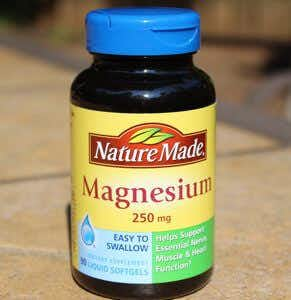
It is a truism that we need a well-balanced diet for good health. Ideally, we would routinely be eating the vegetables, fruits, whole grains and legumes that could provide all our essential vitamins and minerals. But Americans don’t always eat a healthful diet. Should you boost your intake of certain nutrients, for example by taking magnesium supplements?
Do Magnesium Supplements Help the Heart?
Q. I would call magnesium supplements the miracle I was looking for. I had triple bypass surgery at age 40, so I needed all the help I could get. After 13 years, my heart is healthier because of magnesium, with no palpitations, no irregular heartbeat and great blood pressure.
The Power of Magnesium:
A. Magnesium can be very helpful, and many of us don’t get enough in our diets. After all, the primary sources of magnesium are dark green leafy vegetables such as spinach, collards and mustard greens. (Magnesium is an integral part of chlorophyll, the green pigment plants use to convert sunlight into energy.) Some people love these foods, but many eat them rarely if at all.
Other foods that are rich in magnesium are beans, nuts, molasses, whole wheat and fish such as mackerel and halibut. Unless you are a fan of pumpkin seeds, Swiss chard, soybeans or quinoa, you too might need magnesium supplements to get your intake to the recommended dietary allowance. In the U.S., this is between 300 and 400 mg per day for most adults.
Are Medications Depleting You of Magnesium?
People taking medicines such as omeprazole (Prilosec) or esomeprazole (Nexium) for heartburn can easily end up with too little of this crucial mineral. The proton pump inhibitors (PPIs) interfere with the absorption of this mineral, as well as calcium and iron.
Other medicines that can reduce magnesium are diuretics such as hydrochlorothiazide. These drugs control blood pressure, but they can also make the body kick out potassium and magnesium in the urine. Stronger diuretics such as bumetanide (Bumex) or furosemide (Lasix) can also lead to low magnesium. Adequate magnesium levels are important for maintaining blood pressure at normal levels, so prescribers should keep a close eye on magnesium if they have prescribed one of these medications. Magnesium supplements may be needed.
The Health Benefits of Magnesium:
A recent review of 40 studies including more than 1 million participants found that people who got more magnesium in their diets were less likely to have strokes or heart failure (BMC Medicine, Dec. 8, 2016). Although this analysis did not show that magnesium supplements would reduce the risk of heart attacks, it does suggest that people getting adequate magnesium are less likely to be diagnosed with type 2 diabetes.
Scientists have found a connection between magnesium deficiency and depression, although they have not tested whether magnesium supplements can improve mood (Magnesium Research, March 1, 2016). Evidence suggests that magnesium supplements could help against anxiety, especially if it is associated with premenstrual syndrome (Magnesium Research, March 1, 2016).
Who Should Not Take Magnesium Supplements?
People on dialysis and those with compromised kidney function should not take magnesium supplements except under specific doctor’s orders. Supplements could put too much strain on struggling kidneys.
Taking too much magnesium at one time can cause diarrhea.

